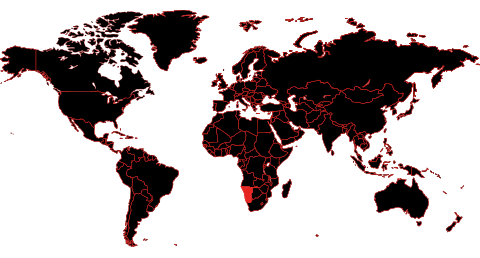Transforming Namibia’s Oil Industry
Unlocking Namibia’s Offshore Potential
Namibia is making strategic regulatory changes to enhance its appeal as a leading oil investment destination. In May 2024, the government announced a comprehensive review of its petroleum laws, aimed at creating a more transparent, competitive, and sustainable framework for international investors.
With billions of dollars in foreign investment at stake, these reforms will reshape the country’s oil and gas sector, influencing operational dynamics, investment decisions, and workforce development. By aligning its policies with global best practices, Namibia aims to strengthen its position among Africa’s top energy markets, competing with established oil-producing nations such as Angola and Nigeria.

The rapid expansion of Namibia’s oil and gas sector has created the need for a modernized legal framework that balances foreign investment, local economic growth, and environmental sustainability. Key objectives of these reforms include:
- Attracting Foreign Direct Investment (FDI) – Offering competitive tax incentives and contract flexibility to encourage long-term engagement from global energy firms.
- Strengthening Local Content Regulations – Ensuring that Namibians are prioritized in hiring, training, and business partnerships within the sector.
- Enhancing Environmental & Safety Standards – Implementing stricter sustainability policies to support responsible oil extraction and minimize environmental risks.
- Clarifying Revenue-Sharing Models – Establishing transparent agreements between the government and oil operators to ensure fair distribution of profits.
With these updates, Namibia aims to compete with major oil-producing nations such as Angola, Nigeria, and Brazil, positioning itself as a stable and attractive destination for energy investment.
Key Changes in the New Petroleum Laws
The proposed legal revisions introduce several critical amendments designed to create a more investor-friendly and locally beneficial industry:
- Local Workforce Mandates – Requiring oil companies to increase local employment quotas and implement skills transfer programs for Namibian professionals.
- Revised Tax & Royalty Structures – Adjusting financial models to attract long-term investment while ensuring fair revenue distribution.
- Fast-Tracked Licensing & Permitting – Simplifying bureaucratic procedures to accelerate exploration and production projects.
- Environmental & Safety Compliance – Enforcing comprehensive environmental impact assessments before project approvals and ensuring strict safety regulations for offshore operations.
These reforms align with international best practices, making Namibia a more competitive and investment-ready energy hub.
What This Means for Namibia’s Workforce
As new regulations reshape the energy landscape, Namibia’s workforce stands to benefit in several key ways:
Increased Job Creation
- Local hiring requirements will drive more employment opportunities for Namibians in the oil sector.
- Skilled positions in rig operations, logistics, and safety compliance will see strong demand.
Growth in Skills Training & Certification
- Companies will be required to invest in workforce training to meet new local content mandates.
- Lelo Energies is poised to bridge the skills gap, ensuring that Namibians receive specialized training in oil exploration, safety, and technical fields.
Stronger Local Business Participation
- Procurement policies will favor Namibian-owned service providers, stimulating growth in industries such as logistics, catering, and offshore support services.
- Increased local partnerships will help develop homegrown expertise in energy-related industries.
By enforcing these local content laws, Namibia is ensuring that its energy sector benefits its people, not just foreign corporations.
Lelo Energies’ Perspective
As Namibia navigates this regulatory transformation, Lelo Energies is committed to supporting both energy companies and the local workforce in adapting to the new legal framework. Our approach includes:
- Recruitment & Compliance Support – Assisting oil companies in meeting local hiring requirements and ensuring that Namibians are integrated into key industry roles.
- Specialized Training & Certification – Providing targeted workforce development programs that align with global industry standards.
- Sustainability-Driven Workforce Strategies – Supporting environmentally responsible employment practicesand ensuring long-term career opportunities for Namibians.
Namibia’s new petroleum laws represent a milestone in the country’s energy strategy. By streamlining regulations, prioritizing local employment, and enforcing sustainability measures, these reforms are designed to foster a thriving and inclusive oil industry.
View source version on
Namibia’s Ministry of Mines and Energy Official Website: MME Namibia
Namibia Petroleum Laws & Regulatory Framework: Namibia Oil & Gas

